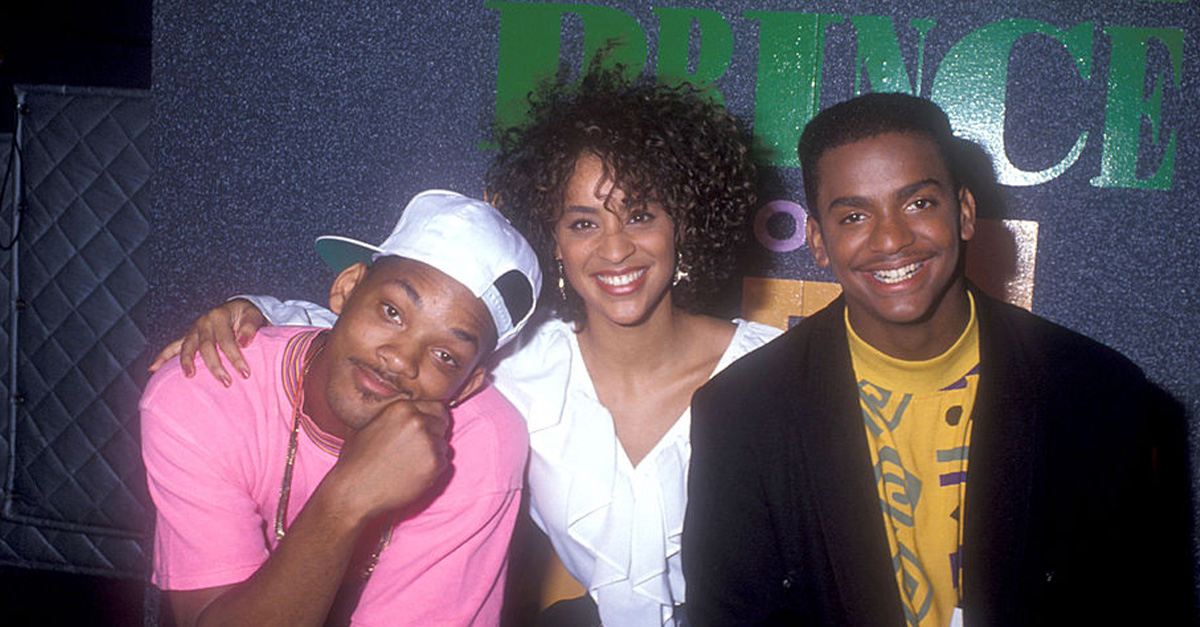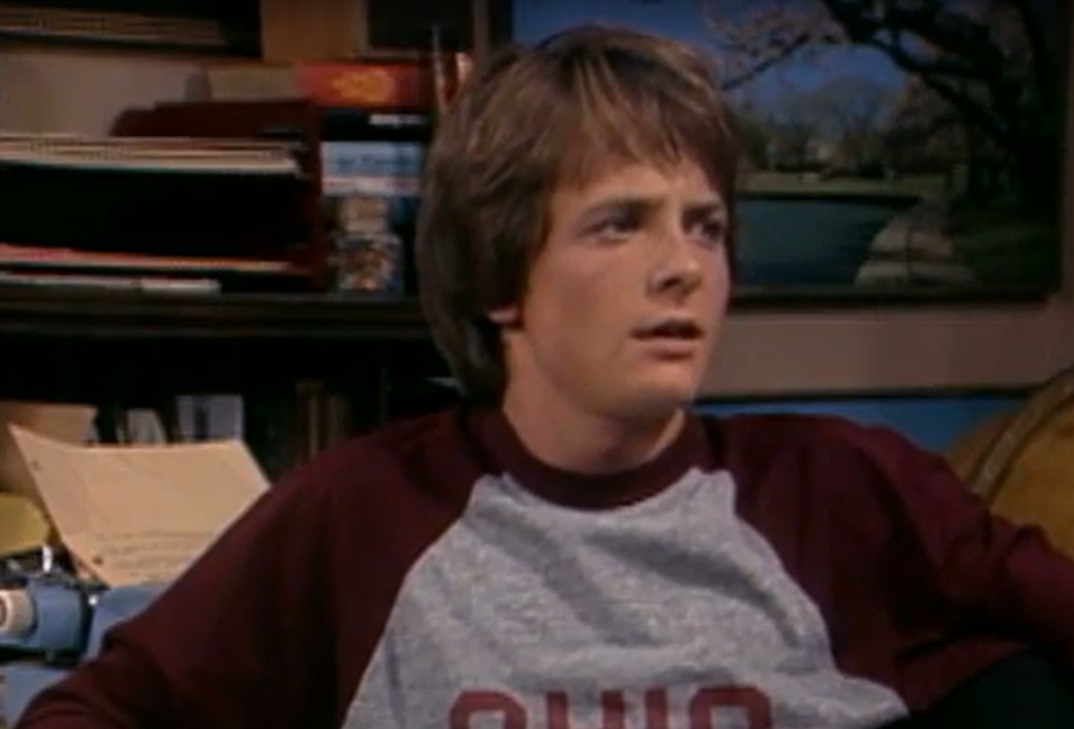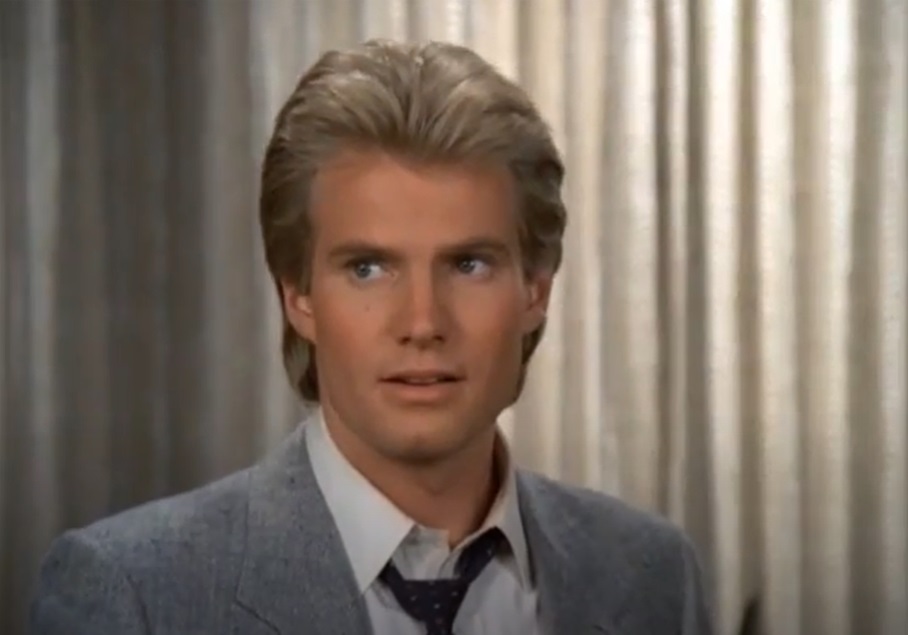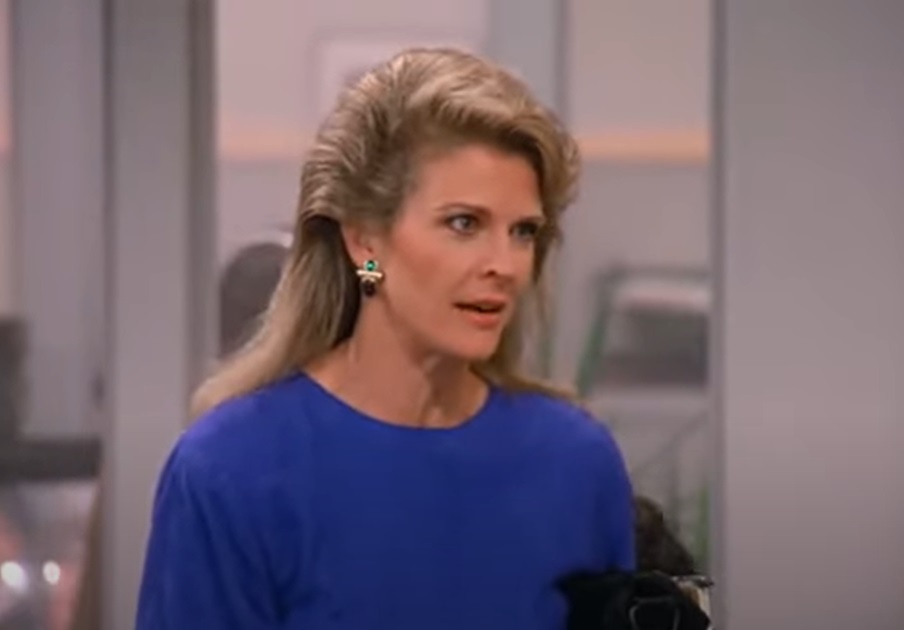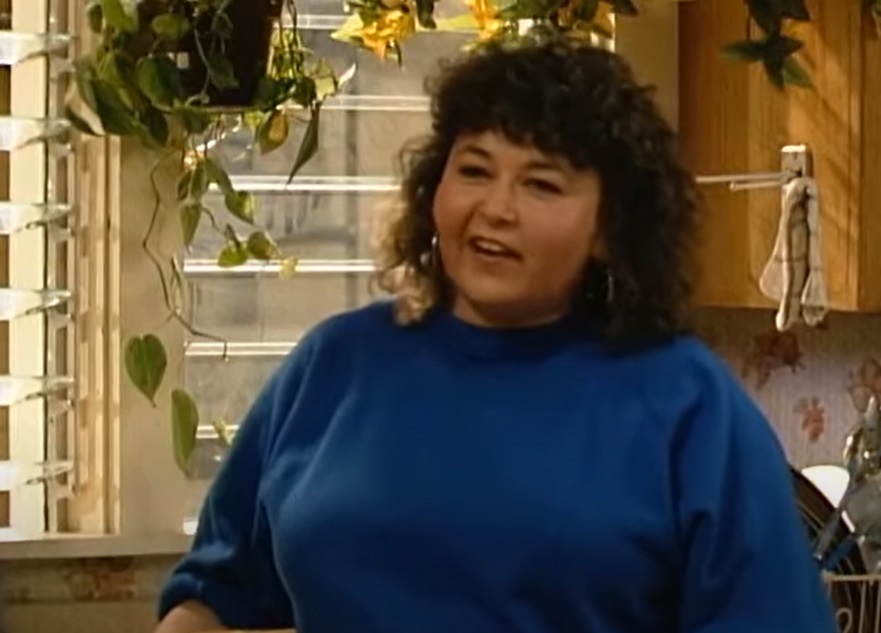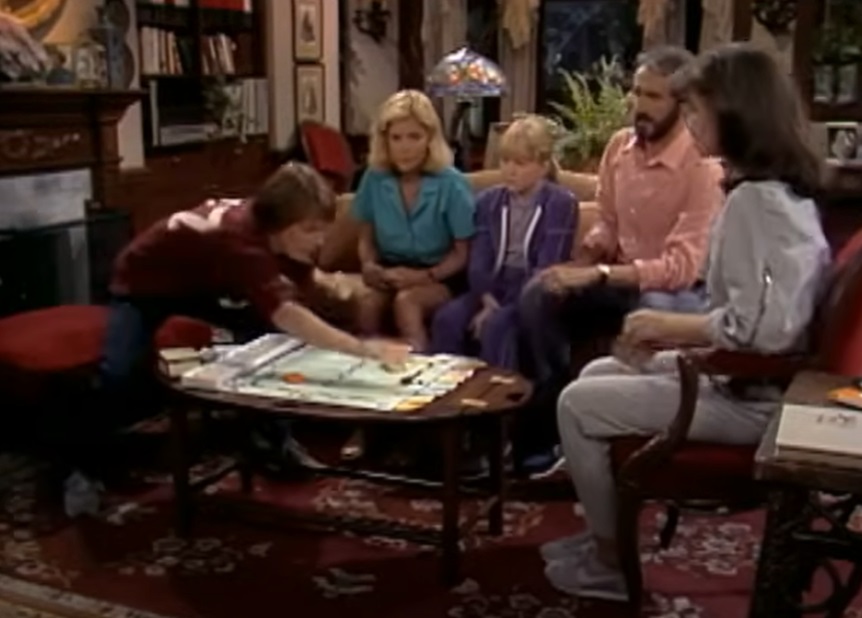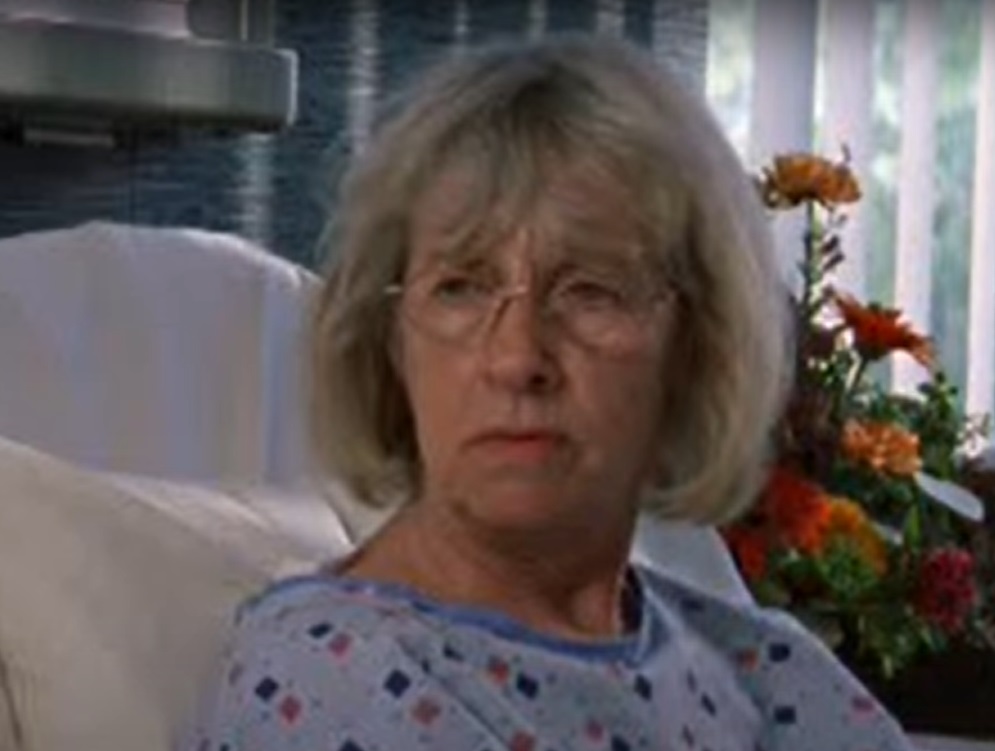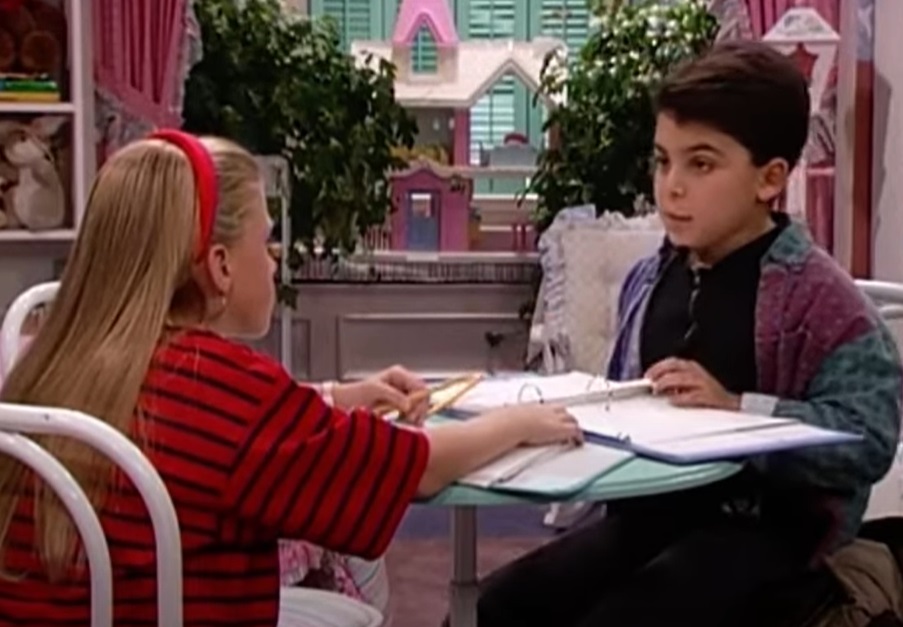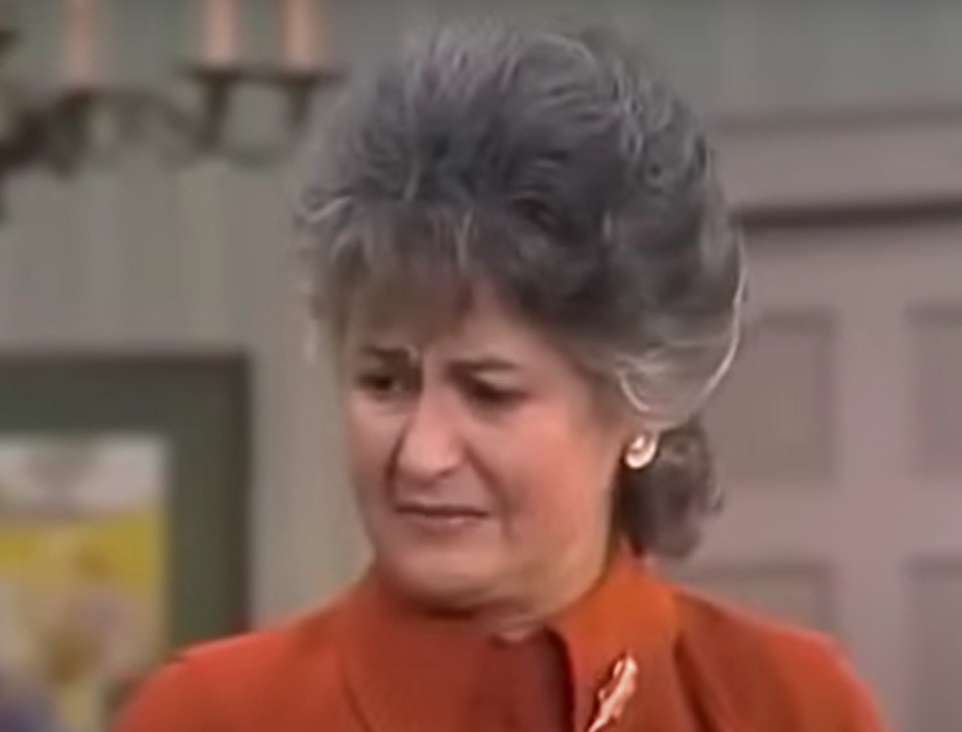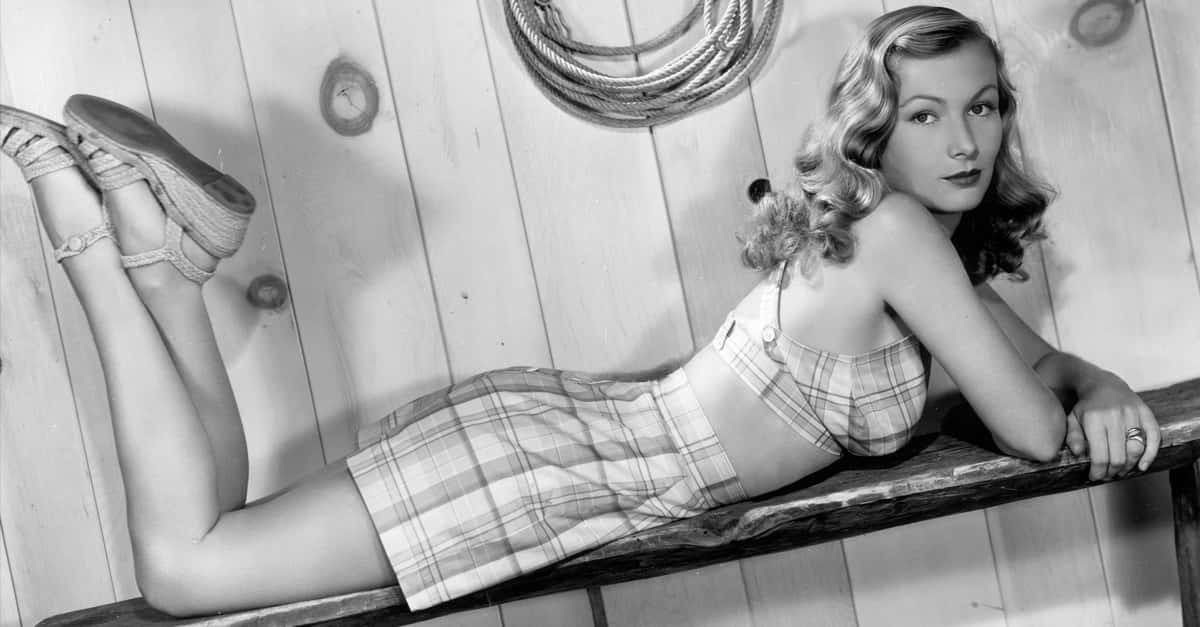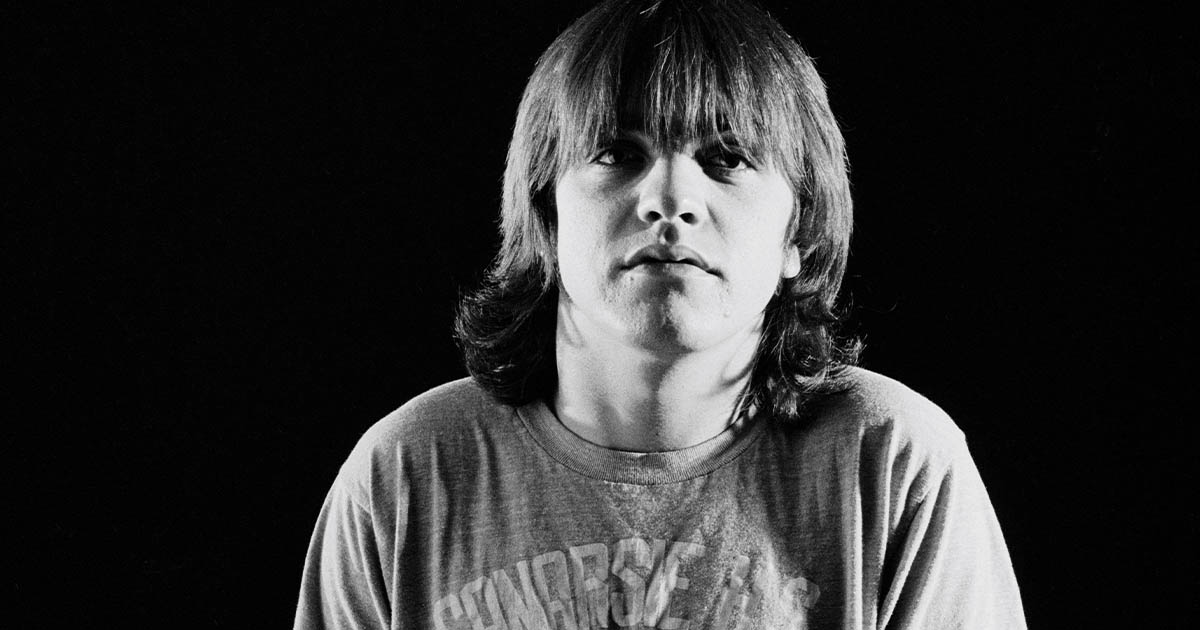30 Of The Craziest "Social Issue" Episodes On TV
TV shows today don't shy away from engaging with tough social issues, usually tackling them head-on. But it wasn't always like that. In the preceding decades since 2000, one might have had to be a little more careful when engaging with difficult social issues like racism, law enforcement brutality, sexuality, abortion, and so on.
These TV shows from days gone by handled these social issues very well with important episodes that started—or continued—conversations in the household, at the workplace, and in society at large.
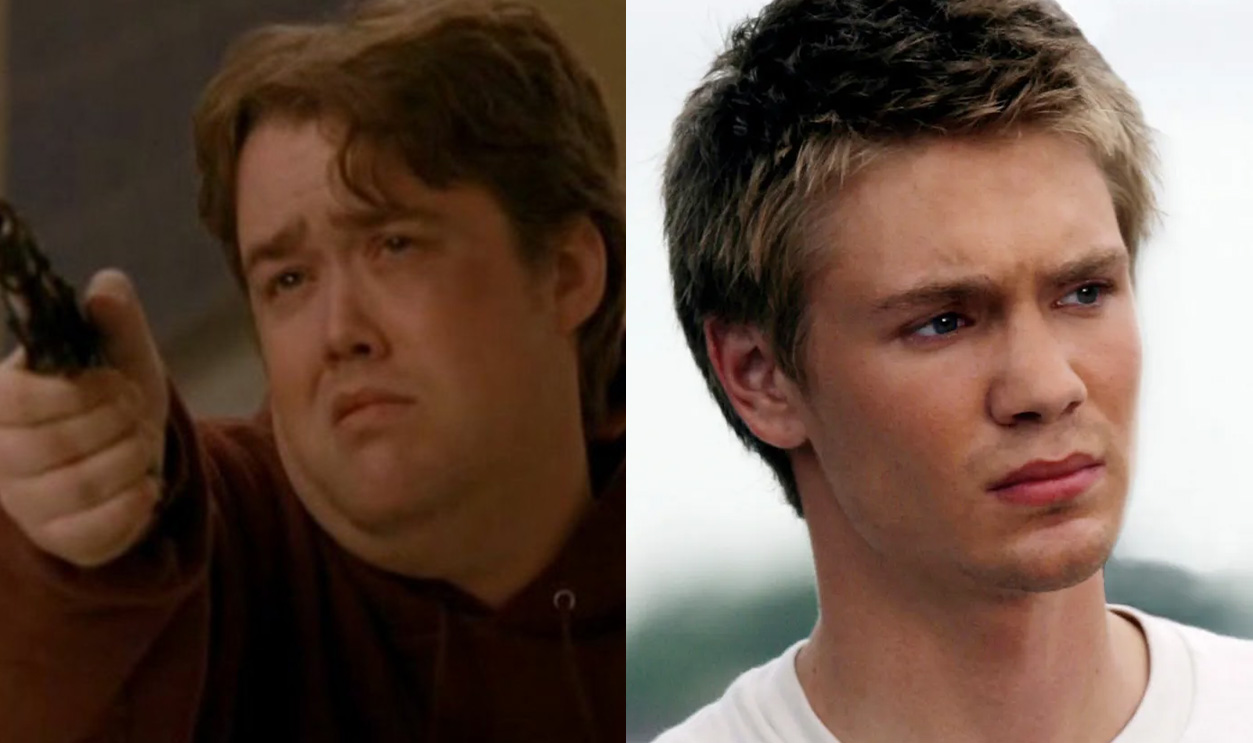
Punky Brewster: "Just Say No"
Punky Brewster (1984) was a product of its time, and at the time, Nancy Reagan was spearheading the anti-drug campaign for the federal government. In the "Just Say No" episode (Season 2, episode 8), Punky and her friends are admitted into a clique, but the clique tries to pressure them into doing illicit substances. Punky and family introduce the "Just Say No" message in a relatable way for the young audience.
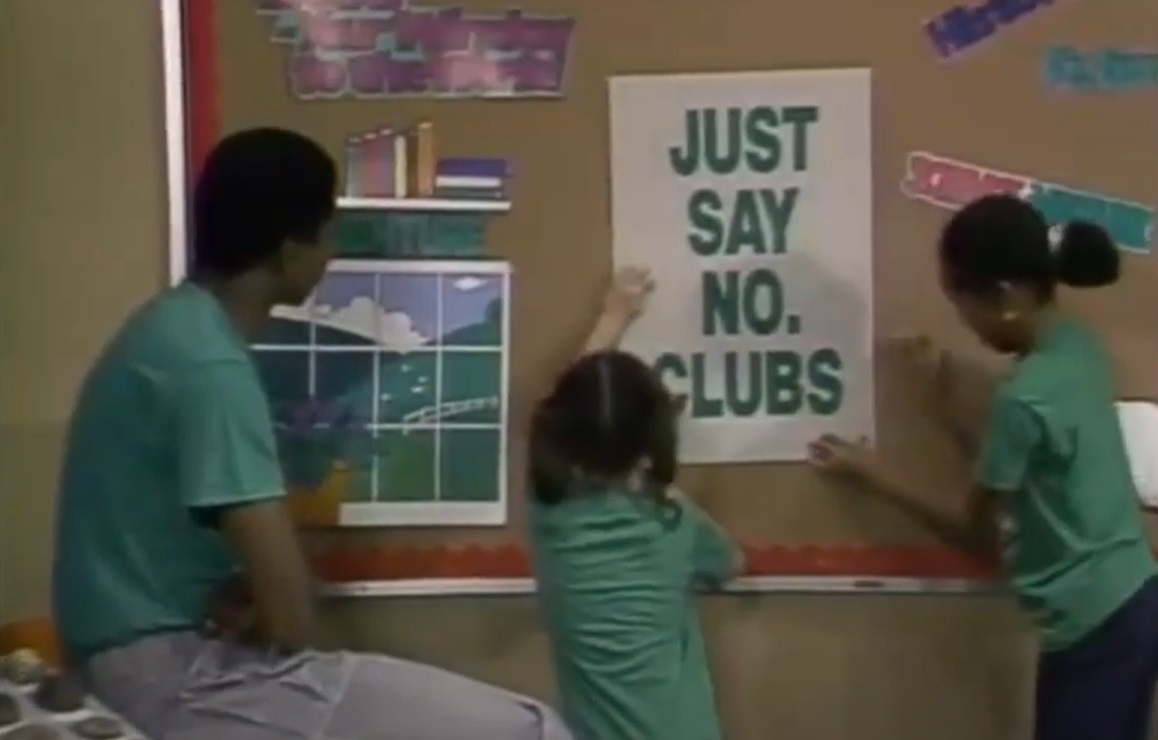 NBC, Punky Brewster (1984-1988)
NBC, Punky Brewster (1984-1988)
Family Ties: "Speed Trap"
To cope with a crushing exam schedule, Alex Keaton (played by Michael J Fox) turns to amphetamines in this episode of Family Ties. It became an entire storyline in the show and highlighted drug addiction powerfully.
St. Elsewhere: "AIDS And Comfort"
In Season 2, episode 9 of the medical drama St. Elsewhere (1982), a patient in the hospital is diagnosed with AIDS, leaving the staff and other patients fearful. St. Elsewhere deals with the subject of AIDS with compassion and medical fact—in stark contrast to the hysteria that often accompanied the subject of AIDS in the preceding decades. It was considered one of the most groundbreaking episodes of American television.
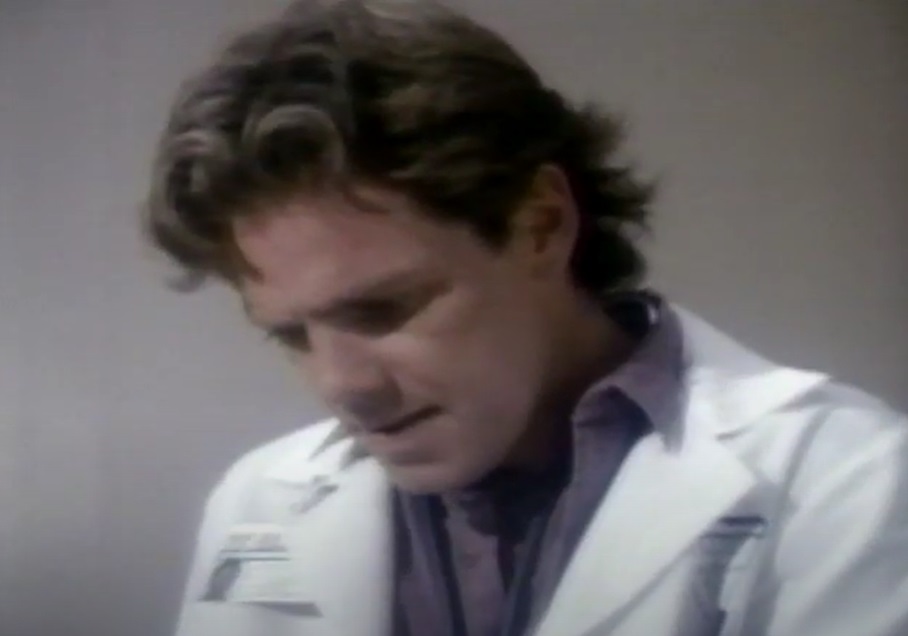 NBC, St. Elsewhere (1982-1988)
NBC, St. Elsewhere (1982-1988)
Dynasty: Steven Carrington's Character
The 1981 soap opera Dynasty dealt with the life and times of the ultra-rich Carrington family. Steven Carrington, portrayed by Al Corley, is the son of the head of the family, Blake. He's also gay, or bisexual, as he has relationships with both men and women throughout the seven-season series. Steven Carrington was one of the first openly-gay characters on mainstream American television at the time.
The Golden Girls: Women's Independence
There were still plenty of chauvinistic stereotypes surrounding women at the time that The Golden Girls aired in 1985. The series followed four mature friends and struck down each stereotype about women's independence and health seemingly every time it aired—and they did it all with an air of humor and wit.
 NBC, The Golden Girls (1985-1992)
NBC, The Golden Girls (1985-1992)
Cagney & Lacey: Breaking The Mold
Cagney & Lacey (1982) would break the mold of a male-dominated industry by introducing two female detectives in the lead roles. Mary-Beth Lacey and Chris Cagney would tackle issues of sexism, substance use, alcoholism, women's rights, and harassment in their roles as female law enforcement detectives. The show aired until 1989.
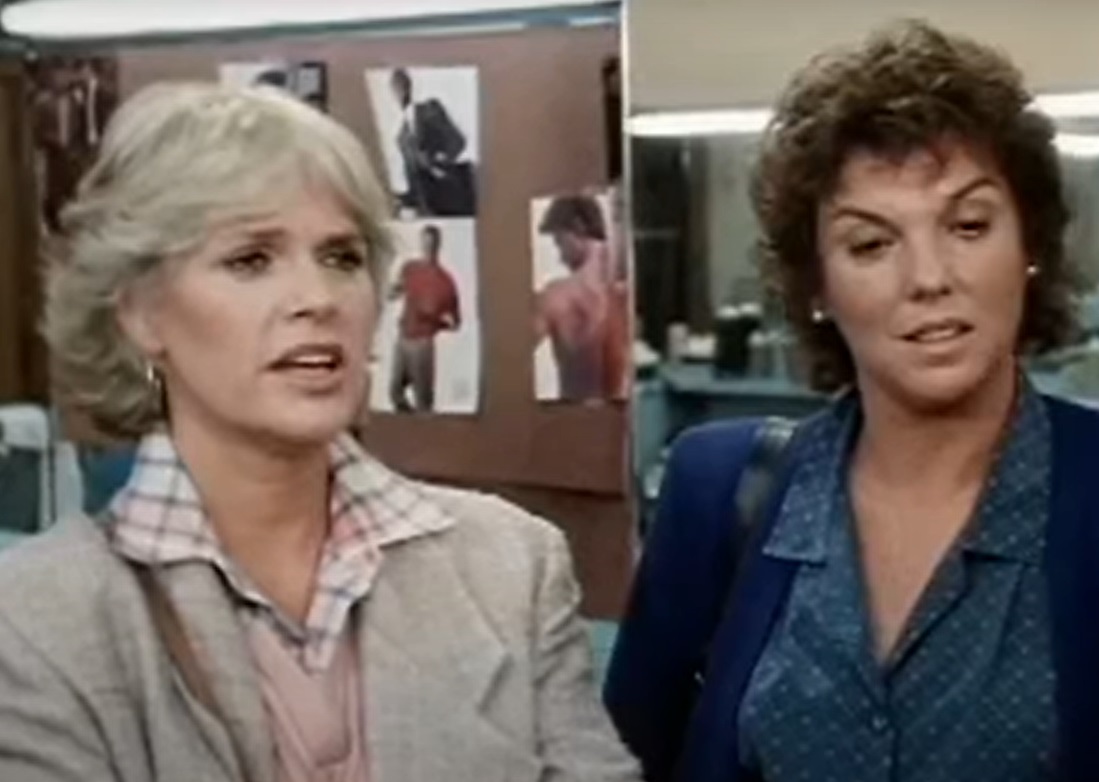 CBS, Cagney & Lacey (1982-1988)
CBS, Cagney & Lacey (1982-1988)
Murphy Brown: Workplace Harassment
Another trailblazing show that brought light to the workplace harassment women often faced was Murphy Brown (1988). It showcased many a crude or chauvinistic comment made by fellow journalists toward the main character, Murphy Brown (portrayed by Candice Bergen).
Roseanne: Realistic Depiction of Working-Class Life
There were multiple themes throughout Roseanne's run on television from 1988 to 1997—most of which dealt with the plight of a typical working-class family and included depictions of poverty and domestic violence in a sobering way.
Family Ties: Generation Clash
Another entry for Family Ties on the list as it did something different and interesting with the family dynamics and differing political ideologies between the characters. The aforementioned Alex P Keaton is definitely a traditional 1980s fiscal conservative, while his parents, Steven and Elyse, were much more of the '60s hippie generation and therefore more liberal in their political views. The youngest children, Alex and Mallory, also adopt their older brother's political views, while Jennifer (the middle child) adopts the more free-spirited ways of her parents.
Diff'rent Strokes: Race-Related Issues
Diff'rent Strokes (1978) aired for eight seasons and dealt with multiple social and race-related issues during its time on the air. Diff'rent Strokes starred Gary Coleman and Todd Bridges as brothers Arnold and Jackson Willis, who are taken in by a wealthy white businessman on Park Avenue, away from their home in Harlem, after their mother (his housekeeper) passes away.
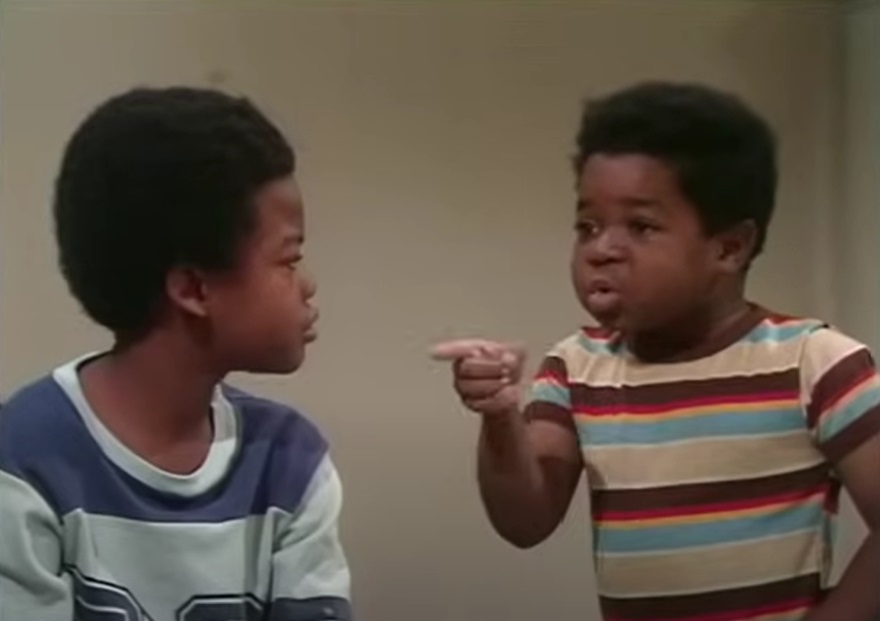 NBC, Diff'rent Strokes (1978-1986)
NBC, Diff'rent Strokes (1978-1986)
Scrubs: "My Old Lady"
Although Scrubs (2001) might not fit the bill perfectly of an "older" TV show, it was first shown in 2001—over 20 years ago! The Season 1 episode "My Old Lady" features Kathryn Joosten (formerly of The West Wing) as a terminally-ill patient with kidney disease who refuses treatment. While it wasn't the first time a show had dealt with patients refusing treatment, it did depict the internal turmoil of her doctor, JD, who's wrestling with his professional duty and personal raison d'etre. In the end, Joosten's character doesn't make it and JD sits with his colleagues in quiet reflection of the patients they've all lost that day.
Sesame Street: Mr. Hooper's Passing
Sesame Street (1969) has dealt with many social issues during the 54 seasons it's been on the air. However, one episode in 1983 dealt with the real-life demise of Will Lee, who played Mister Hooper, by having him pass off-screen and then having the demise mentioned in-show. Big Bird has something to give to Mister Hooper, but is reminded by the cast members that they've already told him that Mister Hooper has passed on. Much like children, Big Bird doesn't seem to fully grasp the concept of death. It is then re-explained to him by the rest of the cast in an emotional episode.
 Sesame Workshop, Sesame Street (1969-)
Sesame Workshop, Sesame Street (1969-)
Growing Pains: Inebriated Driving
Growing Pains (1985) was another family sitcom that defined an era. One particular episode in Season 4 of Growing Pains showcases the perils of inebriated driving. After crashing while driving intoxicated, Sandy (played by Matthew Perry) is laying in bed, looking a little battered and bruised, but otherwise OK. Meanwhile, Carol is having a stern conversation with her parents about the perils of intoxicated driving. "We're never going to do it again" is delivered seconds before Mike comes in and tells Carol and her family that Sandy has succumbed to his injuries. Brutal.
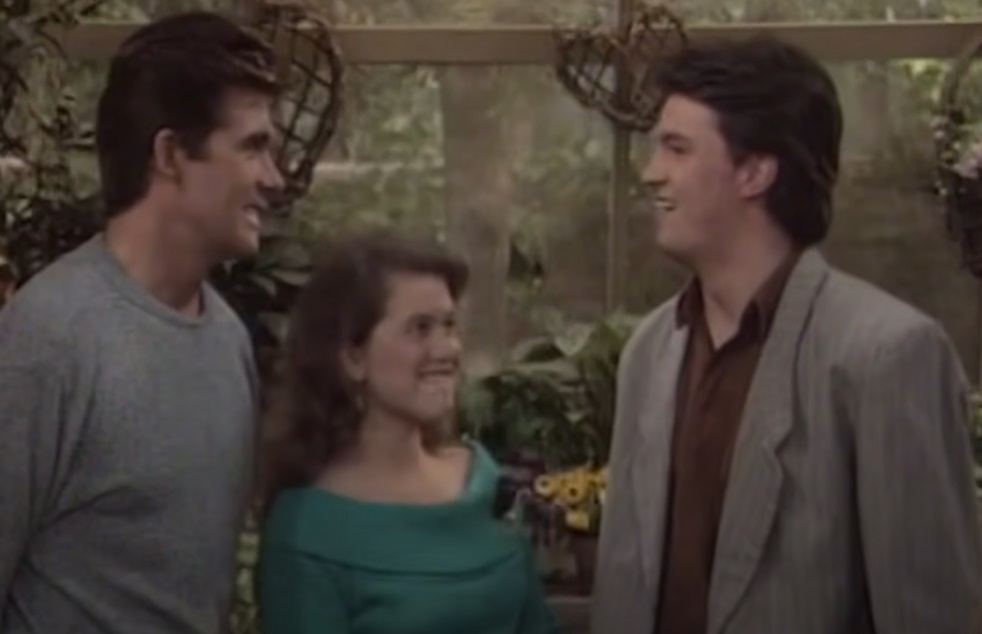 ABC, Growing Pains (1985-1992)
ABC, Growing Pains (1985-1992)
Fresh Prince Of Bel-Air: Denialism Of Prejudice
The Fresh Prince of Bel-Air was no stranger to tackling racism in its episodes. But after Carlton's denial of obvious prejudice toward him in "Mistaken Identity", he's brought back to earth by Uncle Phil's sharing of his real-life experiences. By the end of the episode, Carlton is questioning what his sheltered life has allowed him to miss about the very real experiences of African-Americans.
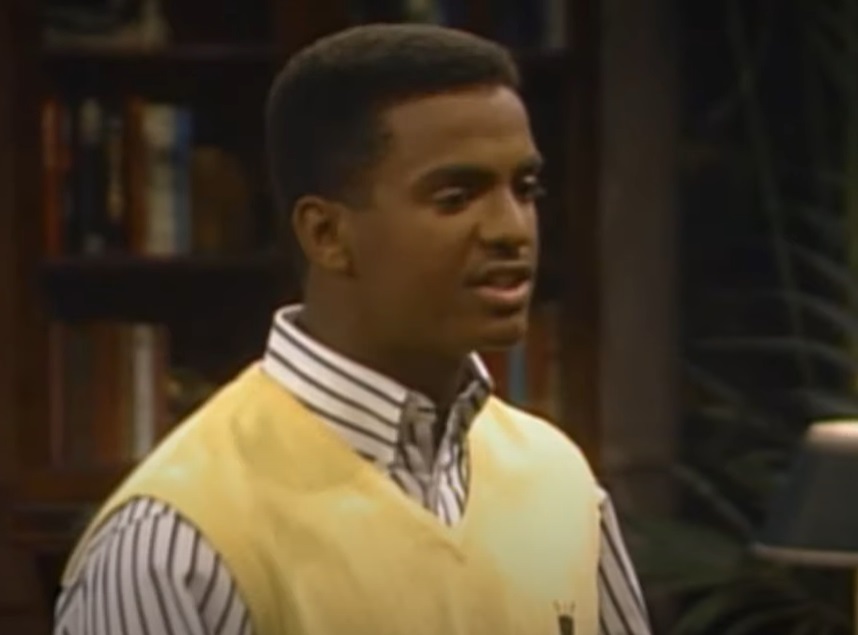 NBC, The Fresh Prince of Bel-Air (1990-1996)
NBC, The Fresh Prince of Bel-Air (1990-1996)
Full House: Silence Is Not Golden
In a Season 6 episode of Full House, Stephanie, one of the main characters, is confronted with a brutal tale of the domestic abuse of a school friend by their own father. "He really clobbered me last week", the friend says. Stephanie replies, "You mean, when you came into school with a black eye and said you'd walked into a door?" "Yeah. A door named 'Dad'". Stephanie wrestles with whether or not to tell an adult about the situation. She eventually does, but the viewer is captivated by the awful subject matter in one of that era's most poignant depictions of child maltreatment.
Punky Brewster: The Challenger Disaster
Punky Brewster dealt with the Challenger Disaster head-on, by showcasing a heartbroken and traumatized Punky recounting witnessing the explosion and dealing with death. However, as the episode goes on, Punky slowly becomes disillusioned with her dream of becoming an astronaut. Ultimately, Punky realizes that accidents happen and decides to continue pursuing her dream, but it's a very gut-punching reality check about how mortality affects children.
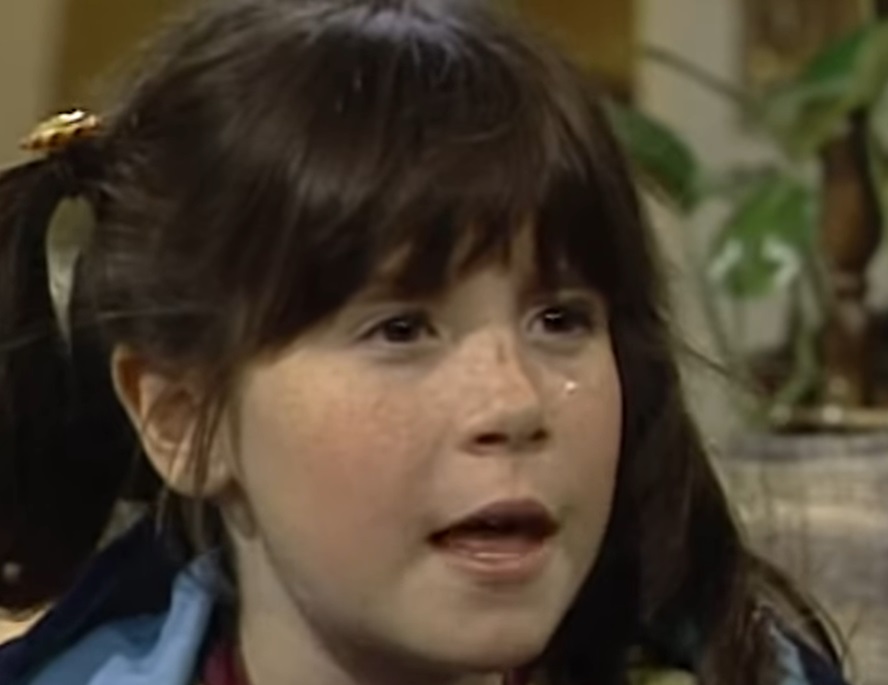 NBC, Punky Brewster (1984-1988)
NBC, Punky Brewster (1984-1988)
Degrassi High: Abortion
In 1989, Degrassi High aired an episode entitled "A New Start", where Erica Farrell chooses to end a pregnancy. It depicts two sisters with opposing views on the subject and was set against a political backdrop of a fierce abortion debate in the United States at the time.
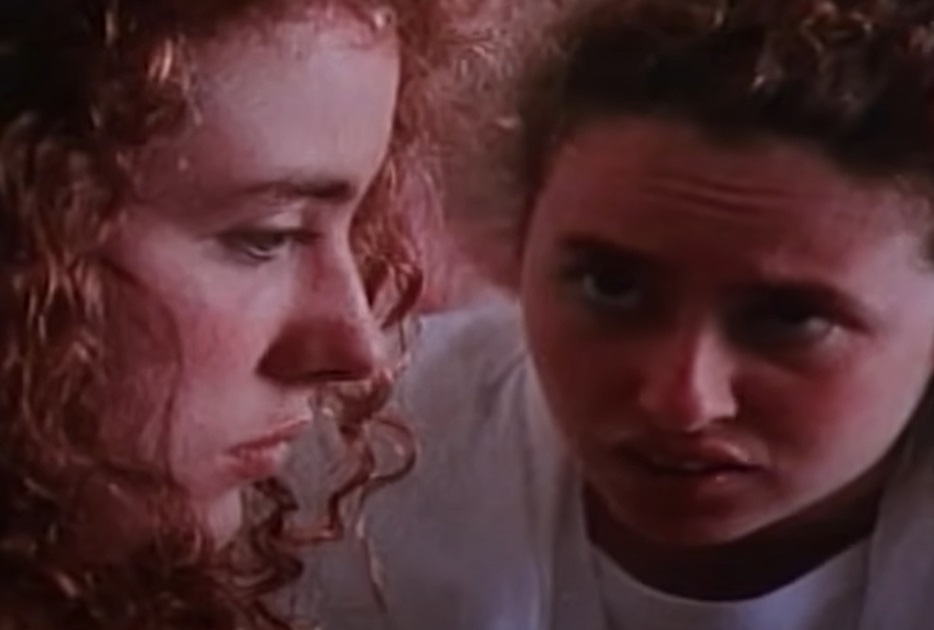 CBC, Degrassi High (1989-1991)
CBC, Degrassi High (1989-1991)
Degrassi: The Next Generation: Abortion
Another more recent entrant onto our list is the 2003 episode of Degrassi: The Next Generation that dealt with the abortion decision by a 14-year-old Manny, fearful of a backlash from her parents. However, it is Manny's mother that ends up driving her to an abortion clinic. The episode was so controversial, that even 20 years after the show dealt with the topic, it did not air in the United States.
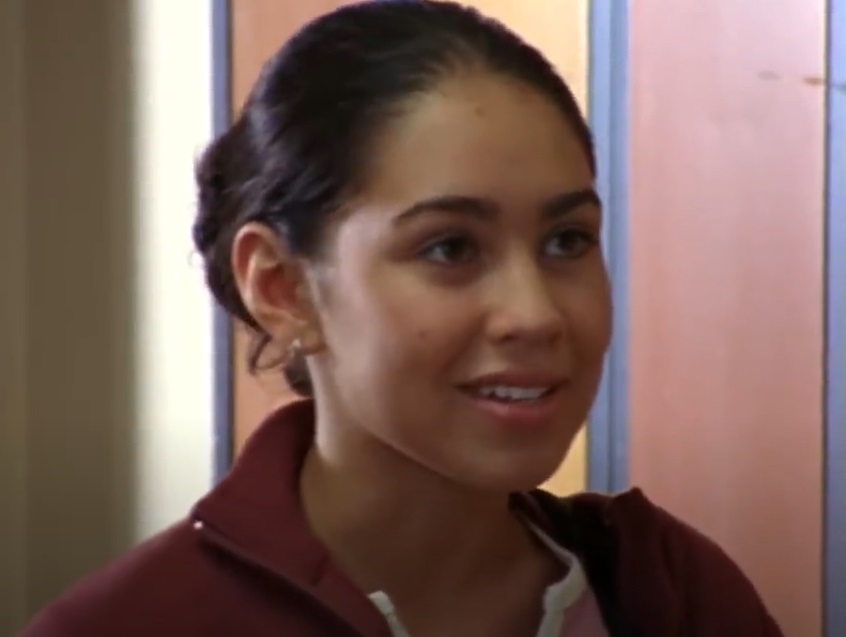 CTV, Degrassi: The Next Generation (2001-2015)
CTV, Degrassi: The Next Generation (2001-2015)
Mary Tyler Moore Show: Antisemitism
The Mary Tyler Moore Show (1970) ran for seven seasons and like most American sitcoms of the '70s, tackled difficult topics. One particular episode in Season 2 tackled the blatant antisemitism displayed by Mary's new friend in a brilliant way. Mary's new friend, Joanne, seems to have an issue with her friend Rhoda. When Mary realizes it's because Rhoda is Jewish, she calls Joanne's bluff—by pretending to be Jewish. When Joanne grows uncomfortable, Mary ends their friendship and cuts Joanne out of her life. Zero. Tolerance.
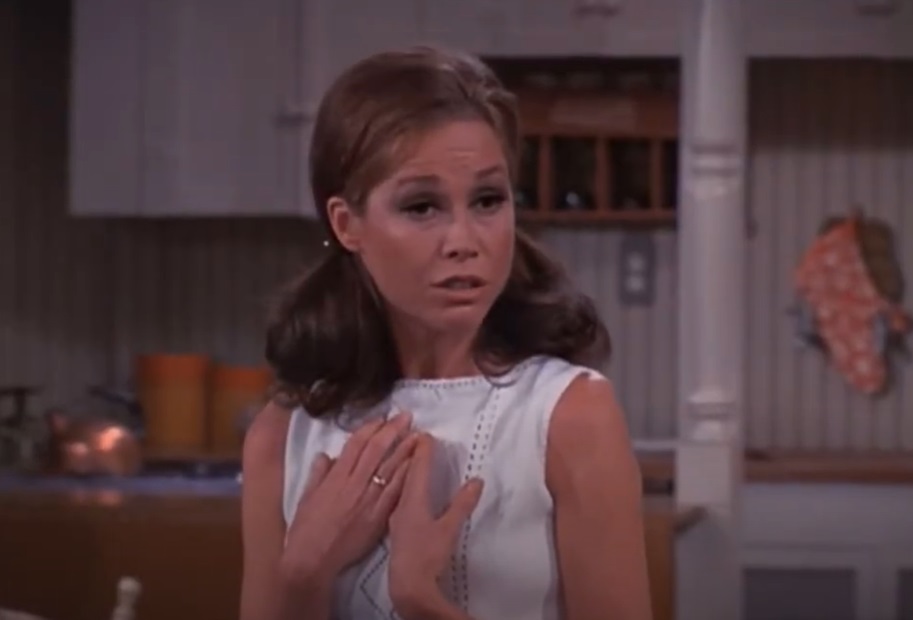 CBS, The Mary Tyler Moore Show (1970-1977)
CBS, The Mary Tyler Moore Show (1970-1977)
The Jeffersons: Generational Racism
In Season 7, episode 14 of The Jeffersons (1975), George has accidentally stumbled into a KKK meeting. After witnessing the meeting leader and his son spew racist rhetoric, the father collapses from a heart attack. George immediately begins CPR and saves the man's life, He receives no thanks. The son doesn't even thank him. It's a brutal highlighting of how racist attitudes can be passed down through generations.
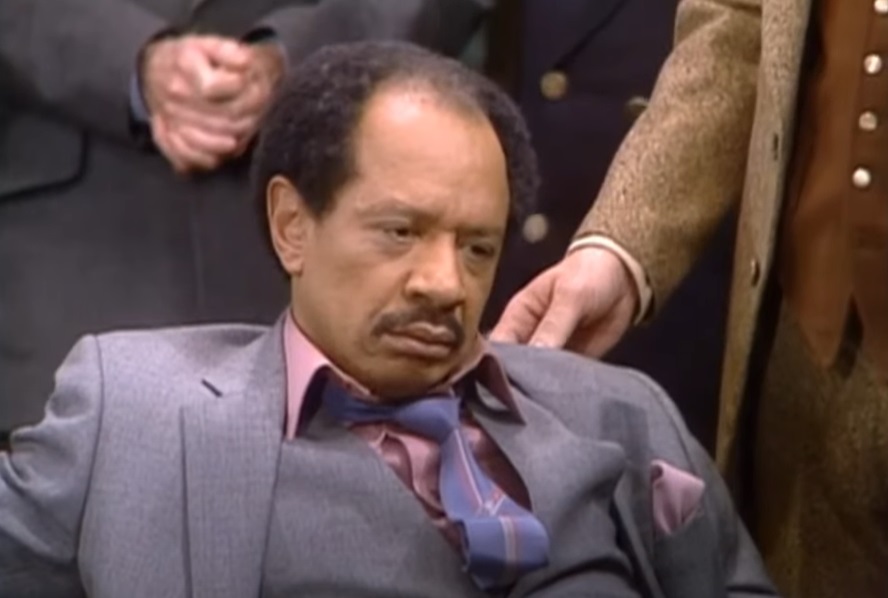 CBS, The Jeffersons (1975-1985)
CBS, The Jeffersons (1975-1985)
8 Simple Rules: Grief
In 8 Simple Rules (2002), star and actor John Ritter succumbed to a heart attack during the show's filming. Instead of writing him out of the show quietly, the director of 8 Simple Rules decided to showcase how different people deal with death. Ritter's on-screen daughter won't leave her room, his on-screen son becomes angry at everything, and his other on-screen daughter can't stop crying.
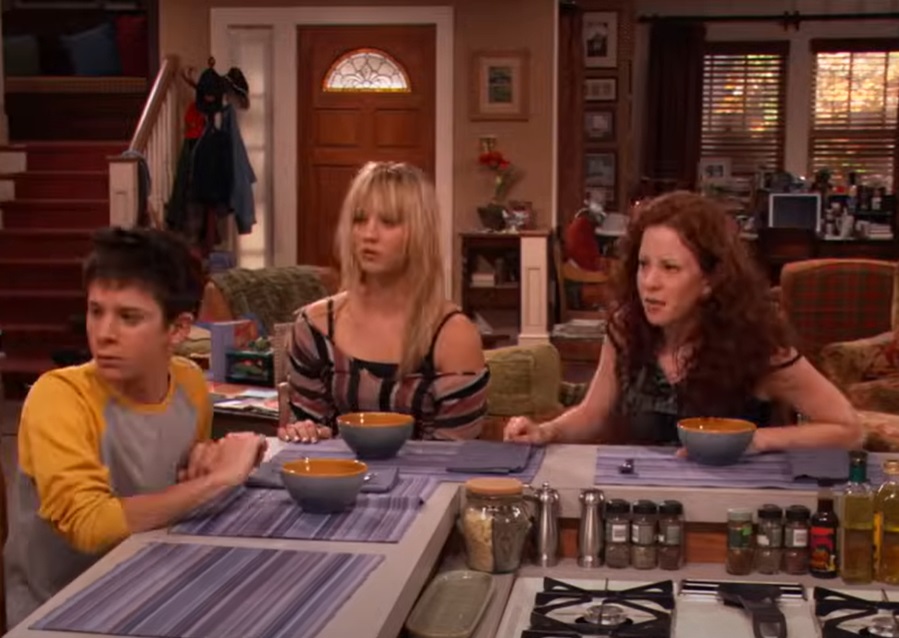 ABC, 8 Simple Rules (2002-2005)
ABC, 8 Simple Rules (2002-2005)
The Facts Of Life: Cousin Geri
Cousin Geri from The Facts of Life (1979) comes to visit in an episode of the same name in 1980. She has cerebral palsy and is a comedian. In the episode, Geri Tyler is played by Geri Jewell (who really does have CP and is a comedian) and tells hilarious jokes, but The Facts of Life also displays the somewhat awkward interactions that people had, not knowing how to react to someone with a physical disability like Geri's.
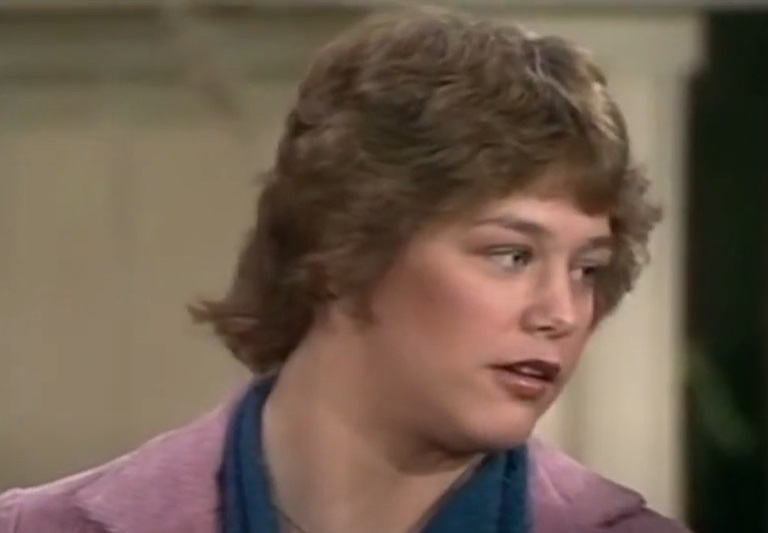 NBC, The Facts of Life (1979-1988)
NBC, The Facts of Life (1979-1988)
The Golden Girls: Blanche's Shocking Homophobia
While The Golden Girls' cast definitely received plaudits for how they dealt with sexism issues during their run, the shocking inclusion of Blanche's homophobia was a twist, to say the least. When Clayton, Blanche's gay brother comes out to Blanche during his visit, she must wrestle with her homophobia.
Eventually, she accepts him for who he is, but the twist of a main character being the one with prejudice was a fresh take on the usual side-character role of a prejudiced person that could be written out of the show.
 NBC, The Golden Girls (1985-1992)
NBC, The Golden Girls (1985-1992)
Maude: Abortion In A Pre-Roe V. Wade World
Set in 1972, Maude made no bones about featuring a politically liberal woman in a conservative male-dominated society at the time. That's why the show touching on the issue of abortion in the very first season with two episodes entitled "Maude's Dilemma" was a huge hit. Maude, then 47, struggled with the issue of whether to have an abortion after getting pregnant. Maude's husband is beautifully supportive of both her decision and her right to choose—all two months before Roe V. Wade became the law of the land.
Diff'rent Strokes: The Bicycle Man
We told you Diff'rent Strokes liked to tackle tough topics. Well, it certainly did that in "The Bicycle Man", two episodes from Season 5 that taught children about stranger danger. "The Bicycle Man" was met with controversy and was one of the first-ever "very special" episodes that dealt with difficult subjects throughout television in the '70s, '80s, and '90s.
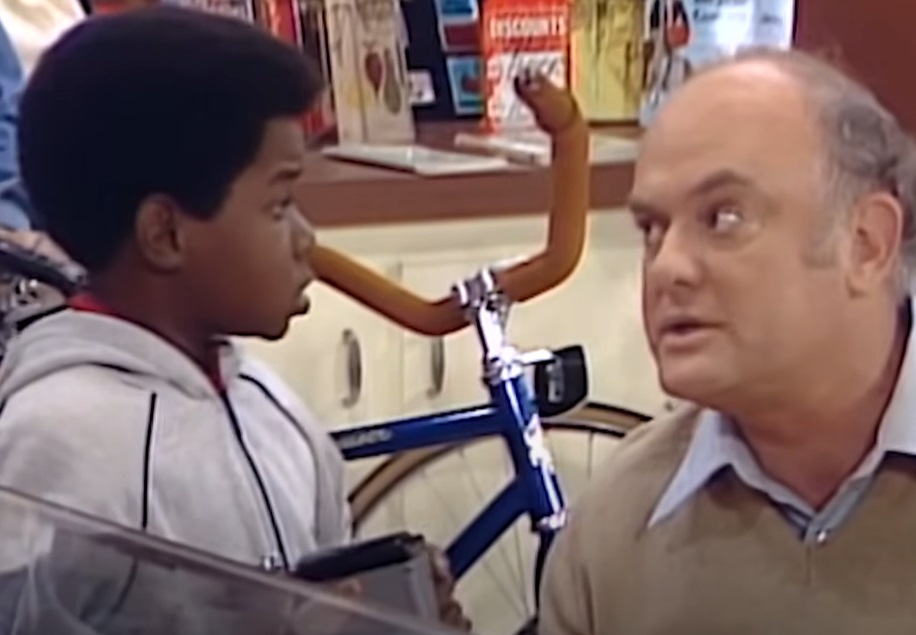 NBC, Diff'rent Strokes (1978-1986)
NBC, Diff'rent Strokes (1978-1986)
That's So Raven: That's So Not Raven
That's So Raven (2003) dealt with many issues, but "That's So Not Raven" dealt with body image issues in a different way, when Raven is featured in a magazine, but her head has been photoshopped onto a skinnier body. Raven's outrage and heartbreak is palpable, but so too is the positive message afterward: "Even if I don't have "the look", I'm still beautiful".
 Walt Disney, That's So Raven (2003-2007)
Walt Disney, That's So Raven (2003-2007)
Boy Meets World: Shawn's Alcoholism
While Shawn from Boy Meets World isn't an alcoholic, his brother and friends are worried about his excessive drinking and confront him about it. He warns Shawn against going down the same road as their father, who had an drinking addiction. Shawn's angry reaction showcases a downward spiral perfectly.
 ABC, Boy Meets World (1993-2000)
ABC, Boy Meets World (1993-2000)
Punky Brewster: Urban Fear
In Season 2, episode 14 of Punky Brewster, Punky's life becomes consumed by fear of the "Northside Stalker", a killer that has been terrorizing Chicago. As the episode goes on, Punky becomes more and more irrationally fearful. Eventually, Henry and Punky Brewster have a conversation about remaining safe when outside and playing, either alone or with friends. The episode's hardest-hitting dialog occurs when Punky says, "My father left and never came back! My mother left and she never came back either", when telling Henry that she doesn't want him to go outside. Oooof.
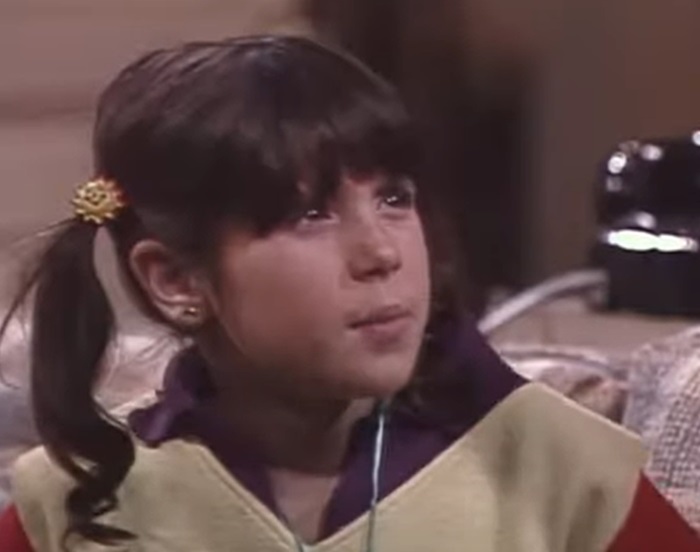 NBC, Punky Brewster (1984-1988)
NBC, Punky Brewster (1984-1988)
Diff'rent Strokes: Eating Disorders
This one's another hard-hitting episode, tackling the issue of bulimia as Kimberly returns for a visit in Diff'rent Strokes. The story unfolds slowly, but Kimberly's bulimia becomes all too recognizable as she eats and then regurgitates food in the bathroom. Eventually, she collapses and is rushed to the hospital, where her eating disorder is uncovered.
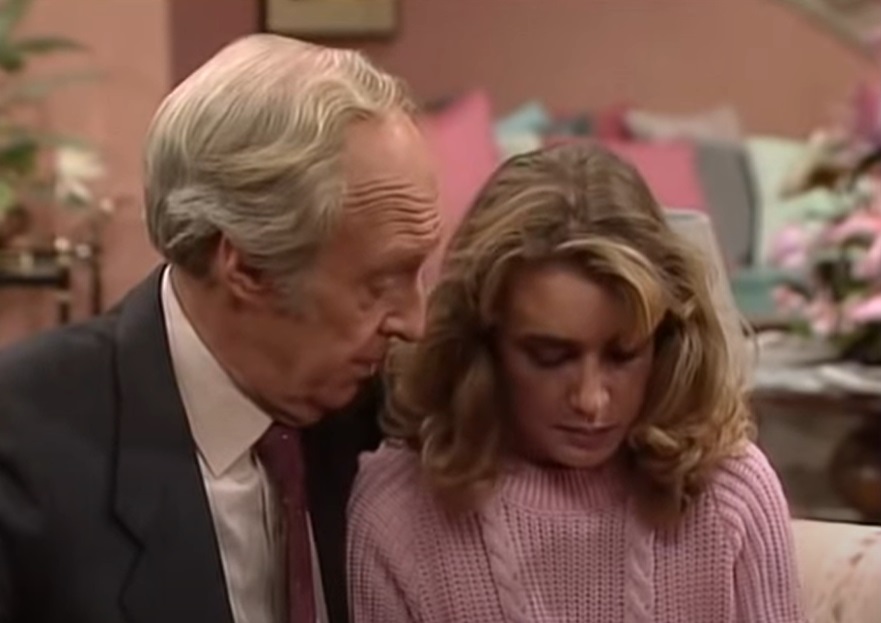 NBC, Diff'rent Strokes (1978-1986)
NBC, Diff'rent Strokes (1978-1986)
One Tree Hill: A School Shooting
One Tree Hill (2003) demonstrated in shocking detail a shooting at Tree Hill High School by troubled teenager, Jimmy. While audiences are spared the carnage of an all-too-familiar scene, Jimmy ends up taking his own life. It's a shocking and hard-to-watch episode.
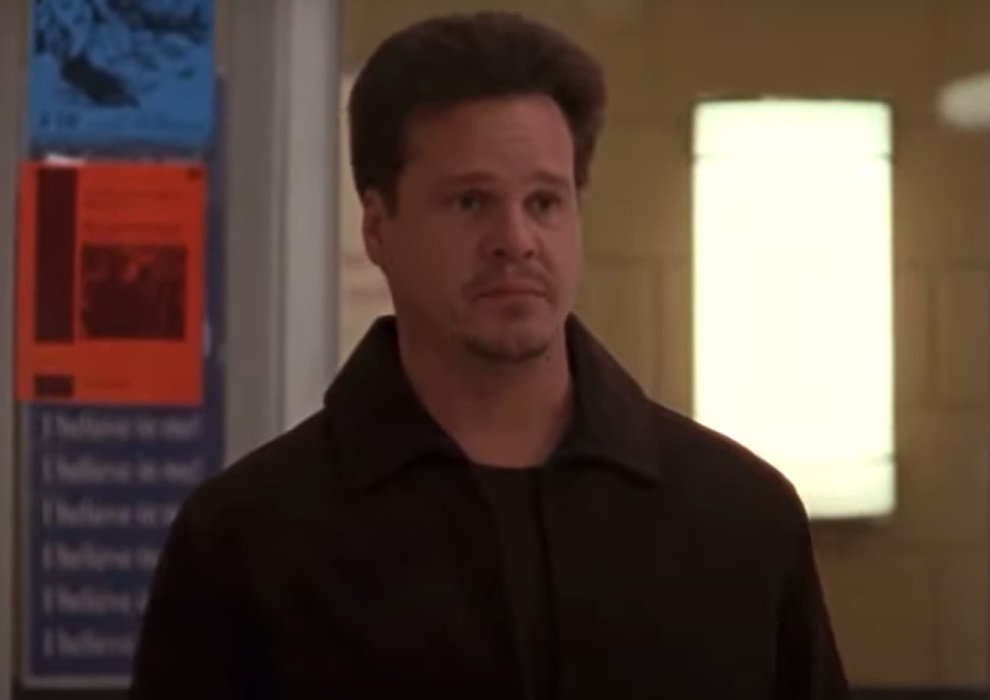 The CW, One Tree Hill (2003-2012)
The CW, One Tree Hill (2003-2012)

